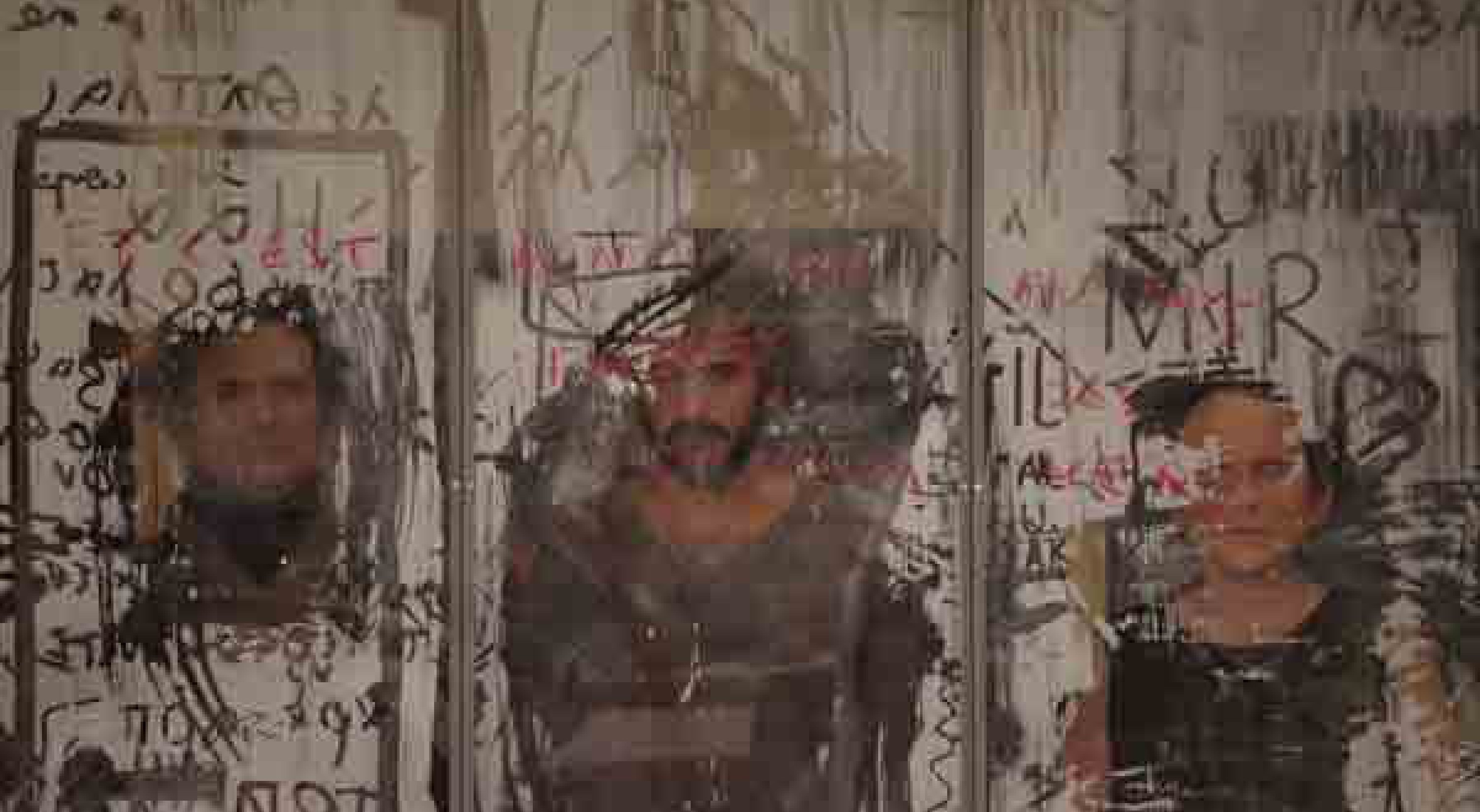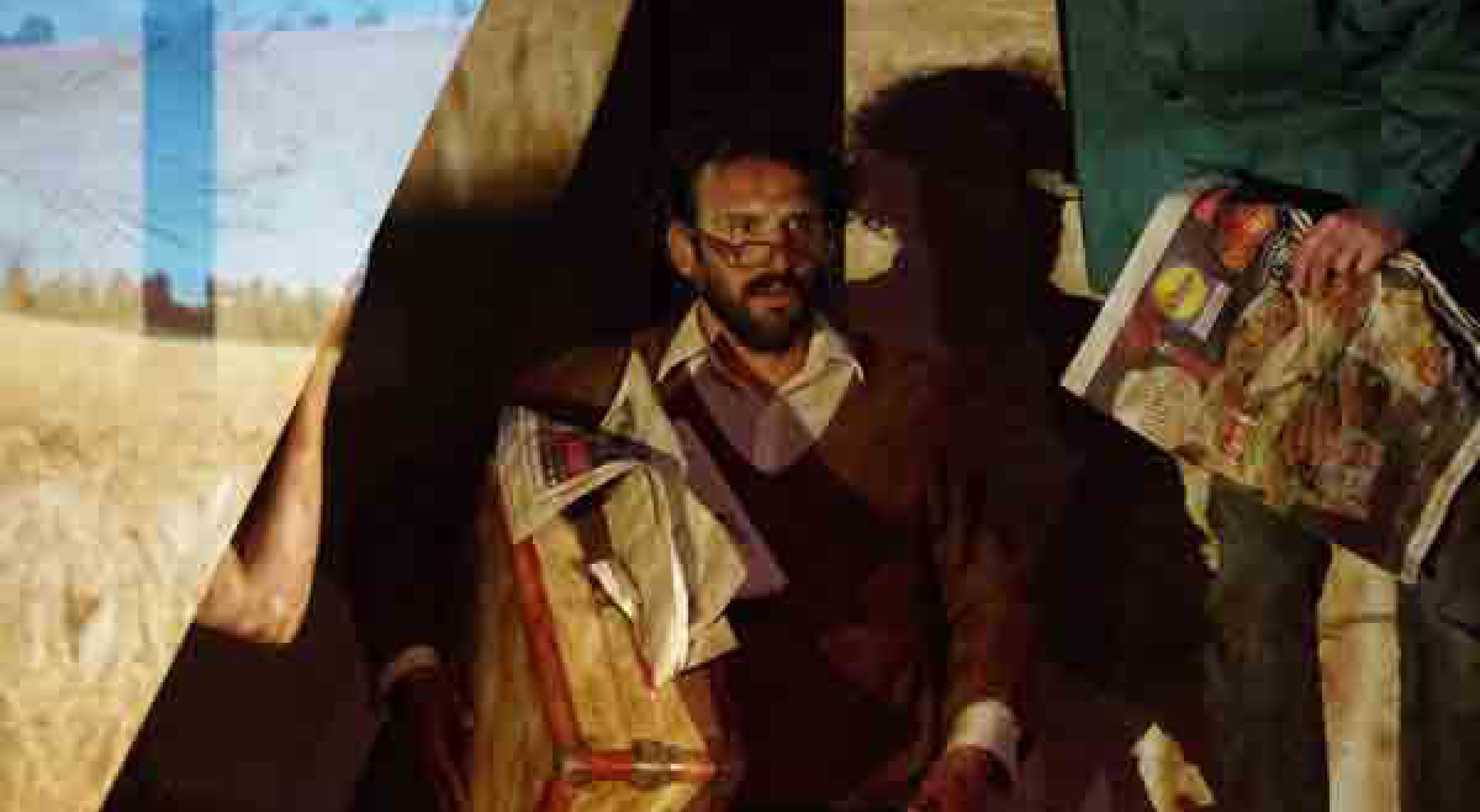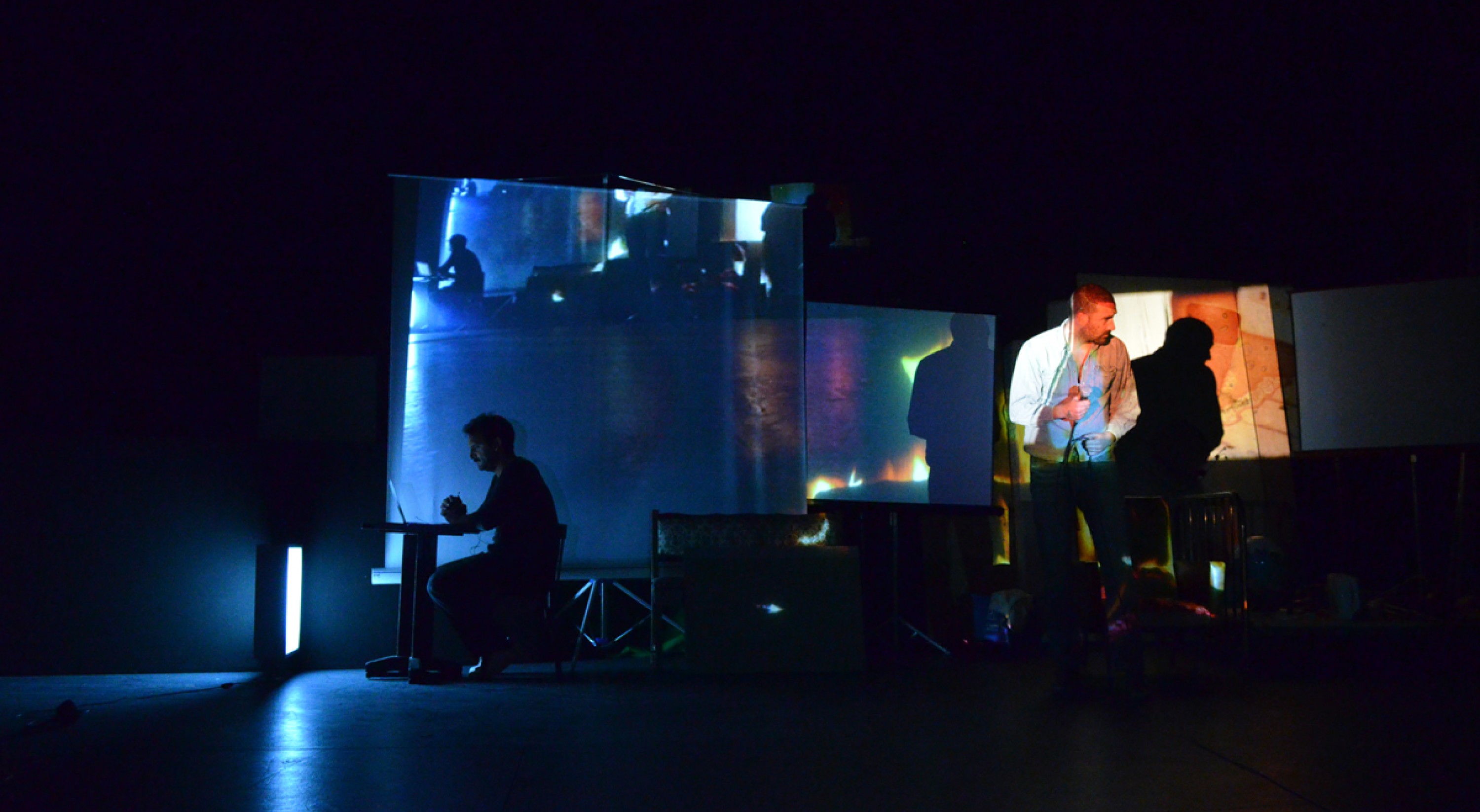Sylvain Creuzevault
ANGELUS NOVUS
AntiFaust
novembernov 2 - december – dec 2
decemberdec 10
decemberdec 15 – 16
Directed by Sylvain Creuzevault
With Christian Benedetti, Antoine Cegarra, Éric Charon, Pierre Devérines, Evelyne Didi, Lionel Dray, Servane Ducorps, Michèle Goddet, Arthur Igual, Frédéric Noaille, Amandine Pudlo, Alyzée Soudet
Musical creation, Pierre-Yves Macé
Stage and sound manager, Michaël Schaller
Stage design, Jean-Baptiste Bellon
Lighting, Nathalie Perrier
Lighting and video operator, Gaëtan Veber
Masks, Loïc Nébréda
Costume design, Gwendoline Bouget
Paint work, Camille Courier de Méré
Production and distribution, Élodie Régibier
A Le Singe production // A La Colline – théâtre national (Paris) coproduction ; Festival d’Automne à Paris ; Théâtre National de Strasbourg ; MC2: Grenoble – scène nationale ; Théâtre Dijon-Bourgogne, Centre Dramatique National ; Printemps des Comédiens (Montpellier) ; La Filature, Scène nationale – Mulhouse ; Le Quai - Nouveau Théâtre d’Angers ; La Comédie de Valence, Centre Dramatique National Drôme-Ardèche // In association with La Colline – théâtre national (Paris) ; Festival d’Automne à Paris for performances at La Colline – théâtre national // The project is supported by the Direction générale de la création artistique du ministère de la Culture et de la Communication. // With artistic participation from the Jeune théâtre national // With support from La Fonderie au Mans // With support from Adami // First performed on 23rd September 2016 at Théâtre National de Strasbourg
Faust is born from a feudal organization of society in a human being, and bearer of encyclopedia-like knowledge, encompassing theology, philosophy, law, medicine, botany and astronomy, to name but a few. The illusory myth of universal knowledge steers the main character towards melancholy, and he deals with the devil in an effort to drive away his dark thoughts.
But what becomes of the myth of Faust in a society given over to the production of merchandise, and its sophisticated notions of social division through labour? Market value is such that knowledge means power, and solitude. It is the no.1 commodity, way ahead of guns and weapons.Is it possible, here and now, to discover a new territory, or construct a place, a common ground, in which the use of an area of knowledge does not end up in bitterness and corruption. In writing this piece, our aim will be to try to find a “yes” answer... though everything points to a resounding no. According to the myth, the Pact enables Faust to become everything that he is not. We have turned this around, because, conversely, in today’s world this Faustian source of wealth is like an order for us to remain what we are. “Become yourself” is not only a recruitment slogan for the French Army, it is also the means of subordination. “Keep yourself to YOURSELF” has become the all-too rational motto for governments and their peoples.What we are lacking in is demons, these “others-of-us”. Their absence is palpable. The times we live in are void of them. Everywhere we look are Idols, and their war of toothy grins. From out of their midst comes the unbearable silence of the Demons. Our own demon is not Mephistopheles, we have given him the name of Baal, Lord of the Flies. Our task is to write a Faust which works against its own myth, an AntiFaust. And then give the work’s title to its own demon, an Angelus Novus. It is a tribute to our most unwanted evening visitor, a tenant of ours very who does not even pay his rent, and who tells us “I am part of that power which eternally wills evil and eternally works good.”
Sylvain Creuzevault
In the same place


